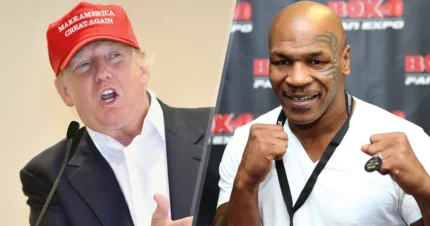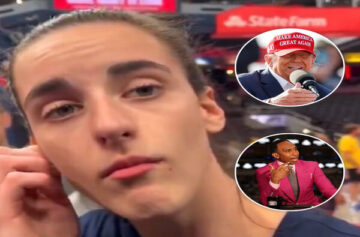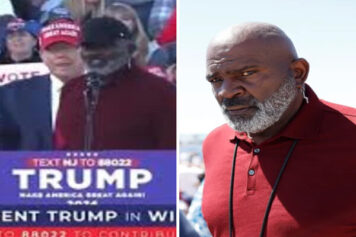“The first thing the cracker does when he comes in power, he takes all the Negro leaders and invites them for coffee to show that he’s all right, and those Uncle Toms can’t pass up the coffee. They come away from the coffee table telling you and me that this man is all right.” Malcolm X–The Ballot or the Bullet
Who Gave Us Our Leaders?
It is a curious paradigm that we find ourselves in when relying on the rich and famous to speak on issues of race, class and gender equality during times of tumult and upheaval. It has long been the practice of societal gatekeepers to invite famous individuals who’re representative of a demographic to carry the message of the elite. Prior to the United States’ existence, governmental bodies of all kinds have employed this method to placate to the people.
Today, whenever something happens in the Black community, we will inevitably hear the clarion call for Black celebrities to step forth to “save” or “enlighten” us. “Where’s Jay Z? Where’s Oprah? Where’s Gayle? Where’s Ava?”
Did you vote for Jay Z? Is Oprah Winfrey your local DA? So why would you expect some grand gesture or statement from these people? Because they’re rich and famous? Because they’re Black? And why, when they don’t say or do as we expect, are we ever so disappointed in them?
Though for much of America’s existence individuals of African descent living within her borders were locked out of government, the act of employing individuals from within the community to convince others of the good graces and high-minded ideals of one White messianic figure or another is as old as classism and racism themselves.
The “chosen” become spokespersons for an elitist hierarchy in which the average man, woman and child would find themselves on the bottom rung.
In a Democracy, the majority theoretically rules. But what happens when the majority is dead set on the subjugation and disenfranchisement of another group of people?
The Black Cult of Personality
Well, it is then when the message must be sweetened by the palate of someone that community adores. For Black folk in America, preachers, athletes, actors, comedians and other accomplished capitalists usually fit the bill.
This is when the fault lines of two diametrically opposed ideas are smashed together haphazardly with the stated goal of coming to a compromise. However, for Black folks, political compromise is tantamount to a dream deferred for yet another generation.
This clashing of philosophical ideas is called a dialectic, described as a discussion and reasoning by dialogue as a method of intellectual investigation through discussion and the consideration and elimination of ideals in order to come to a better understanding.
In theory, it is a phenomenon through which society is supposed to move toward a greater good, both for its people and its own existence-either of which are reliant upon the other. The people need proper government to protect it from threats foreign and domestic, while truly good governance relies upon an educated and inspired population base.
But what happens when a government purposefully “de-educates” the masses by way of educational defunding or “miseducates” by way of false narratives carried by likeable faces?
https://www.youtube.com/watch?v=Sc4BPYIqm6k
In the United States, as you well know, our Democratic society is reliant upon its elected officials to carry the grievances of their constituents up past the Corinthian columns and marble floors of state, federal and local houses of legislation and law.
That’s the short, simple version of how things are supposed to work in such a society. But things haven’t been that simple in America since its founding.
A democratic society that is weighed down by insincerity, power-grabbing, carpet-bagging and all manner of dirty dalliance is not a democracy at all.
Since the first human societies began formulating government at the dawn of antiquity, there have been all manner of individuals who, while not royalty, still were elevated to a level of prestige due to their popularity.
Though societies vary, the ability to sway public opinion in favor of one overture or another is often wielded by someone who, while not visibly connected to governance, has been elevated above the masses, by the masses themselves, because of their ability to do something deemed difficult extremely well.
Falling For The Celebrity Okie Doke
For example, actor John Wayne was able to use the celebrity status gleaned from his time being a film star into a career as a speaker on conservative issues, as was Charleton Heston.
Through voting, each eligible citizen can influence her local, federal and state elections, bills and referendums that directly affect their lives. It is this equality of influence spread throughout an electorate that, in theory, allows the deciding votes of the majority to ideally be in the best interest of the broader population.
But people tend to be enamored by pretty, shiny things.
Especially so in a country in which entertainment and leisure often take precedent over education and reason, the deployment of individuals with big opinions, large followings, and very little insight on the issues at hand, with political Svengalis playing puppet master, is as predictable as it is tiresome.
In the United States, oftentimes the very elite status we celebrate the rich and famous for attaining was, in fact, gleaned from the toil of the people.
Yet, thanks to the undeniable gravitas of the cult of personality phenomenon, America has long since fallen into the trap of elevating, coddling and electing the least qualified individuals to some of the nation’s highest offices simply because “He seemed like a cool guy”.
Donald Trump and Ronald Reagan immediately come to mind. However, there are scores more unqualified White men who’ve been placed in decision making positions in business and government just because they were already successful and fit the demographic the message is aimed at.
“Show me in the white community where a singer is a white leader or a dancer or a trumpet player is a white leader. These aren’t leaders. These are puppets and clowns that have been set up over the Black community by the white community and have been made celebrities and, usually, they say exactly what they know the white man wants to hear.”–Malcolm X, interview at UC Berkeley 1963
The Honorable White Folks
A similar paradigm can be observed with the uplifting of “honorable” White men who use speech favorable to the ideals and power of the status quo.
Trump was very successful in recruiting and dispatching African Americans who he felt would help him garner the Black vote. What do Kanye West, Hershel Walker, Mike Tyson, Terrell Owens, Shawn Merriman, Jim Brown and Dennis Rodman have in common? They’re all Black males who became rich by entertaining White folks.
It is my belief that they were selected because it was erroneously posited that they have sway over the Black community and thus are used to parrot a party line that is antithetical to the upliftment of other Black people.
In much the same manner, past Democratic campaigns will cart out old Civil Rights Activists, Black Studies professors, authors, lawyers and other upwardly mobile Blacks to carry their banner during election season.
In both instances, the term “honorary White folk” is apropos within this paradigm.
An honorary White man, in my opinion, is any non-White person of color who was deemed successful in his or her field to a point of being unassailably excellent in that craft.
Former pioneering brain surgeon and current Secretary of Housing fits that bill. But, ask yourself, does he become Secretary of Housing if he wasn’t a famous, conservative Black person willing to go against over 85 percent of Black voters to support a demonstrative demagogue?
Likely not.



